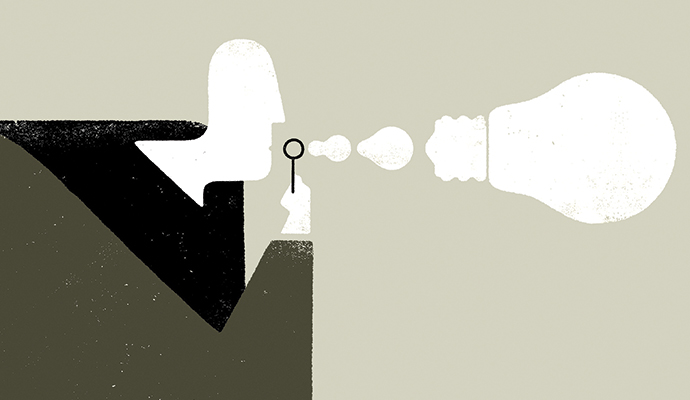The Tricky Nature of Customer-Service Questionnaires
Surveys make patrons feel better about the service they’ve received — but can also delay their return visit.
Title: Understanding the Effects of Post-Service Experience Surveys on Delay and Acceleration of Customer Purchasing Behavior: Evidence from the Automotive Services Industry (Subscription or fee required.)
Authors: Utpal M. Dholakia, Siddharth S. Singh, and Robert A. Westbrook (Rice University)
Publisher: Journal of Service Research, vol. 13, no. 4
Date Published: November 2010
Customer-service surveys typically represent the largest chunk of a company’s market research budget and are the primary way firms glean personal information from consumers. But for companies that provide retail services, this study identifies risks in asking customers to evaluate their experiences, especially if they ask too often. The researchers found that customers who filled out company-issued surveys felt better about their visit because of the survey, but, paradoxically, then took longer to return and engage in repeat business.
The researchers drew on data from a large U.S. quick-lube oil change company. The authors collected vehicle and demographic data on more than 11,000 patrons — about 8,000 of whom completed either pre- or post-service questionnaires — encompassing more than 75,000 visits over a seven-year period. By comparing service history and odometer readings against the time customers spent between recommended visits, the authors gauged how the completion of satisfaction surveys affected their attitudes toward the firm and their decision about when to return.
The researchers also interviewed more than 1,000 of the customers in the study. The interviews confirmed that participation in a survey led customers to have better memories of the visit and infer that they received more thorough service. Filling out a questionnaire also increased customers’ satisfaction with the firm for up to nine months, compared with those who were not surveyed.
In other words, completing a survey made customers feel more confident about the quality of their service and reduced their uncertainty about their car’s future functionality. The effect on their return visits was twofold. In the short term, they felt the service was so thorough that they could delay their next visit, putting a crimp in the company’s cash flow. But in the long term, the surveys paid off: Customers remembered feeling good about the service they got, so after that initial delayed visit, they returned more frequently than was called for by the company’s guidelines.
The study has several implications for managers of businesses that depend on customers coming back at regular but lengthy intervals, which would include providers of medical services such as mammographies and companies that service air conditioners and other equipment. The authors caution that firms conducting post-service surveys for ongoing tracking should be careful not to resurvey customers too often. For example, if a recently surveyed customer is surveyed again on the next visit, this could compound the delay before another return. As it happens, the researchers point out, some companies, including the oil-change firm in their study, instinctively understand this risk, and they flag respondents and preclude them from additional survey participation for up to two years.
Other ways to stimulate customers’ return visits after a survey are to offer a coupon that must be redeemed within a certain period or to provide free services on the customer’s next visit. But managers should be aware that the study’s interviews revealed that many customers conflate surveys with promotional materials, even if the questionnaire is designed to be objective. If they feel they are being targeted for promotion rather than useful information, customers could delay their return even longer.
Bottom Line:
Customer-service surveys are a valuable tool for companies that want to learn more about their patrons, but they carry a price, at least in the short term. Filling out a questionnaire leads customers of certain kinds of service companies to believe their service was more thorough, thus making a return visit more subject to delay. But if handled well, the surveys will accelerate visits down the line.




